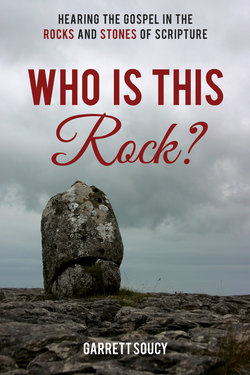Читать книгу Who is this Rock? - Garrett Soucy - Страница 9
На сайте Литреса книга снята с продажи.
Chapter 6
ОглавлениеIf you make me an altar of stone, you shall not build it of hewn stones, for if you wield your tool on it you profane it. (Exod 20:25)
There is a story that Melody Green tells in her book, No Compromise, about her late husband, Keith Green. They were passing a field one day and Keith made mention of how it was such a beautiful spot. Melody held her breath and waited for what would come next. Historically, he would remark that a field like that should be used to build a Bible college, or an orphanage, but this one time he made no follow-up comment. She says in the book that it was such a profound event, and one that showed that a true maturity was taking place. Keith was able to give credit to God’s creativity and goodness, without needing to perfect it with his own finishing touches.8 Beauty is sufficient in itself without a necessary utilitarian application other than pleasure. We approach something akin to this when we look at this passage in Exodus concerning the earthen altar.
An altar was a place whereupon God was worshiped. In the Old Covenant, the act of giving the best part of one’s wealth, which was outwardly signified more in one’s agricultural assets than anything else, was one of the primary ways in which God was worshiped. The concept that God has required that he be worshiped in certain ways, and not in others, is an intertestamental concept. There are a number of ways in which God frames prerequisites for proper worship, such as the passage in question. It is safe to say that, in the New Covenant, this regulative principle is reduced to one sharp inward requirement: worship must be done in spirit and in truth.
God is spirit, and those who worship him must worship in spirit and truth. (John 4:24)
There are other passages that can make sense of this, in an applicatory manner, but the primary principle is that simple maxim of Christ’s. Jesus is speaking to the woman at the well. She has used the issue of the regulative principle as a divergent, in order to avoid having a conversation about her own sin. She is a great legalist in this sense. The fact remains that, in the Old Covenant, some aspects of the law carried the prophetic weight of symbolism. It’s not that God actually hates blended fabrics. He hates the tepid abdication of a person whose heart serves two masters. Blended wine and blended fabric were external props by which he could teach that lesson. It is why, when the New Covenant is issued, these external props begin to lose their efficacy—because the Holy Spirit was given, and the Instructor would reign in the heart. The lesson of being single-minded would leave the skin and enter the innermost regions. We are in similar territory in our passage about the unhewn altar. Here is the Exodus line of Scripture within the context of the verses around it:
